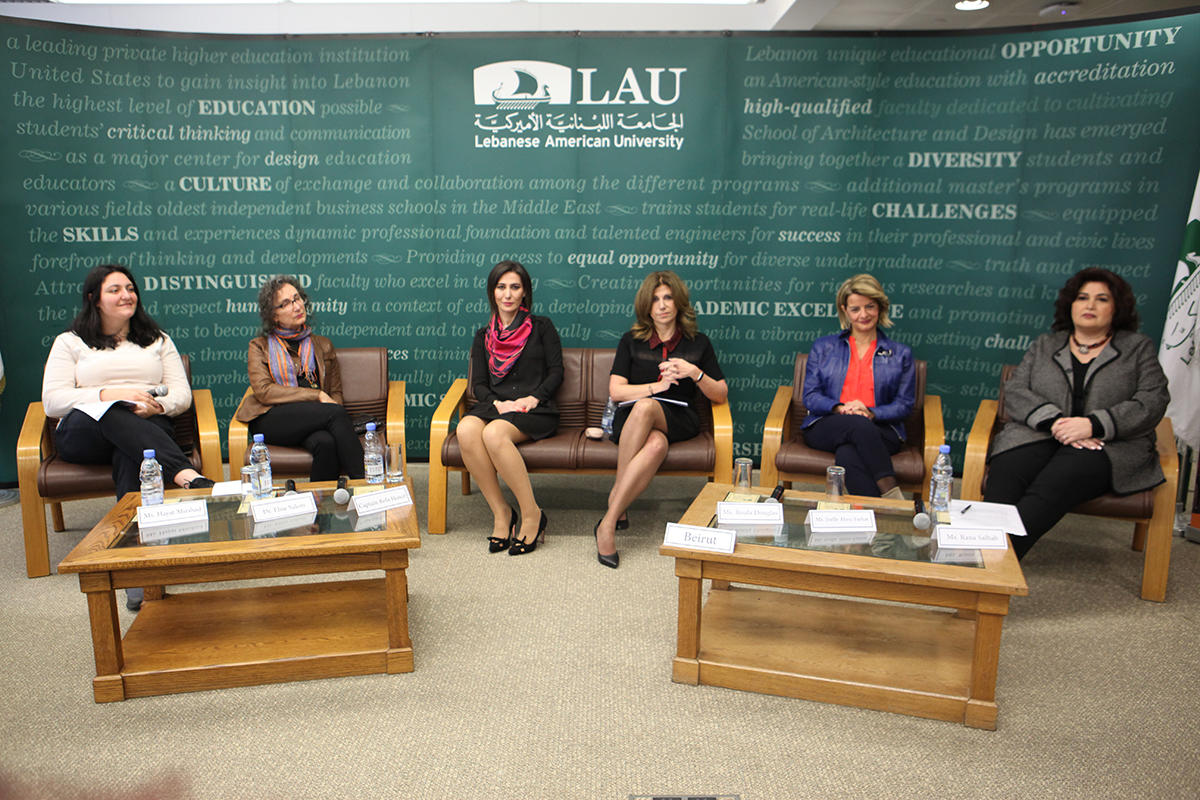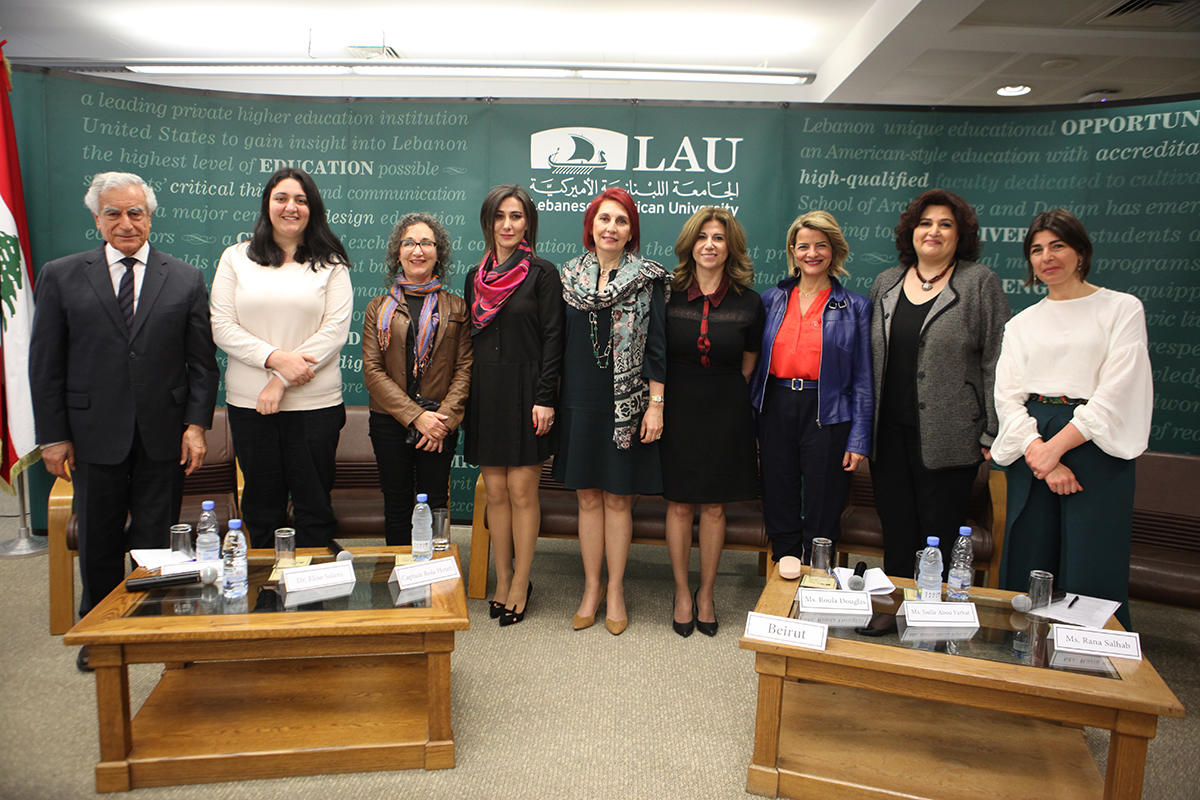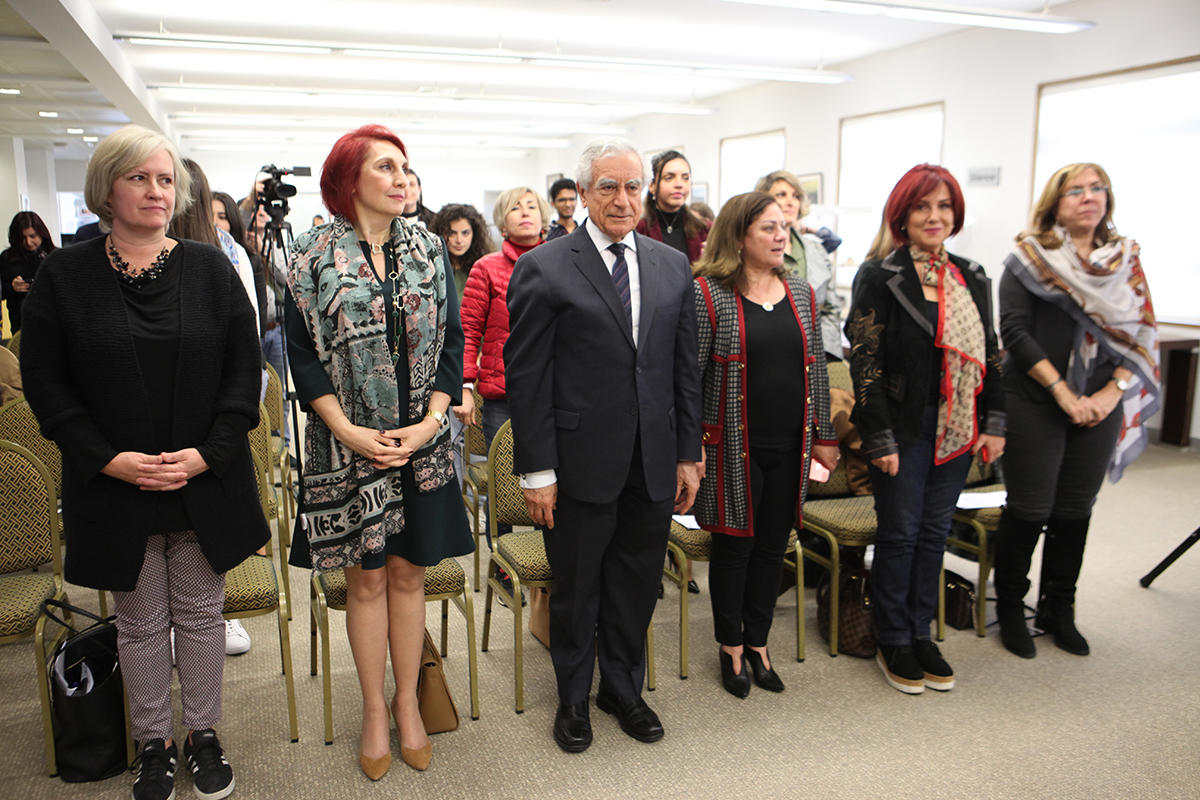Making the Case on Female Leadership
On the occasion of International Women’s Day 2020, we held a panel discussion with prominent Lebanese women as part of the 2nd global conversation entitled “Making the Case on Female Leadership”. The discussion took place on March 2nd, 2020 at Riyad Nassar Library, LAU, Beirut campus.
This conversation is in partnership with Athena40 and Global Thinkers Forum. It was centrally moderated from London under BBC World’s Tim Willcox who connected live to 8 different cities/panels Karachi, Istanbul, Johannesburg, Beirut, Amman, California, and Athens.
The Beirut panel included Dr. Elise Salem, Vice President for Student Development and Enrollment Management at LAU, Ms. Joelle Abou Farhat- Co-Founder and President of Fiftyfifty Ngo Lebanon, Ms. Roula Douglas- Journalist, Author, and Instructor at University Saint Joseph, Ms. Rola Hoteit- First and only female pilot in Lebanon, Ms. Rana Ghandour Salhab- Partner- Talent and Communication at Deloitte and Ms. Hayat Mershad, Journalist and Feminist Activist, Co-Founder and Co-Director at Fe-Male, and Head of Communications and Campaigning at the Lebanese Women Democratic Gathering (RDFL) as the moderator.
The panelists shared their personal and professional experiences and ways to go forward in promoting women’s leadership. The discussion was concluded with the below findings:
- It is not only about having women in a leadership position but also that these women reach to others, make the space for them and speak up on feminist issues as leaders
- Our environment is saturated by stereotypes, changing mentalities also relies on education and media coverage.
- Getting rid of discriminatory laws, but also implementing affirmative action, through quotas and other gender-sensitive measures at all levels.
- Spend the money and energy on accelerating women’s advancement.
- Not only having more women in the leadership but changing the face of leadership to become more collaborative. There is a need for substantial change in the leadership in all sectors, and bringing more women in is not only a matter of number but of qualitative transformation.



